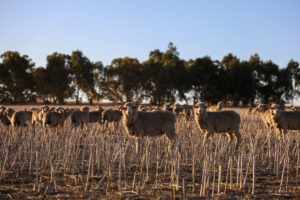Neil Thomson, member for Mining and Pastoral and Shadow Minister for Lands has called on the State Government to fund an urgent ‘surge response’ to feral animal control on public and reserve lands which are the responsibility of the State Government.
“Pastoralists and other private land-owners bear the brunt of feral animal control measures, and this is simply not good enough, especially in the face of huge risks of a Foot and Mouth Disease (FMD) outbreak,” said the Hon Neil Thomson.
“We know that if FMD enters Australia, the biggest battle will be controlling the disease in our herds from transmission through feral goats, pigs, camels and cattle,” Mr Thomson said.
“Unallocated Crown Land, parks and reserves are the responsibility of the state government, and they must act to avert the FMD threat from traveling through those lands and onto the stations and farms that run vulnerable commercial livestock.
Mr Thomson was the Chief Land Officer at the Aboriginal Lands Trust during one of the largest ever State managed culls of feral animals from 2013 – 2016 said, “feral animals are running rampant across the rangelands and not enough is being done by the State to support Aboriginal rangers, pastoralists and shooter groups to reduce numbers.
“Every option should be on the table, including the urgent re-admittance of shooter groups into key locations with the appropriate procedures in place.
“The issue is a priority in the Kimberley, Gascoyne and Murchison regions where public lands are not being managed well,” Mr Thomson said.
“Action now could mean protection later.
“I have also seen first-hand the massive environmental benefits that come from the reduction in feral animals, and we know this relatively low-cost measure will provide further protection to Western Australia if the disease gets through our border controls,” said Mr Thomson.
Mr Thomson also criticised the State and Federal Government about the lack of transparency regarding the risks of FMD entering the country.
“Quarantine controls are our most effective economic measures in protecting our vital livestock industry, but there must be more transparency about the real and additional risks that Bali travel poses when compared with travel to other infected countries.
“The Government’s dearth of information in relation to health advice regarding COVID is not
a model to apply to FMD,” Mr Thomson said.


